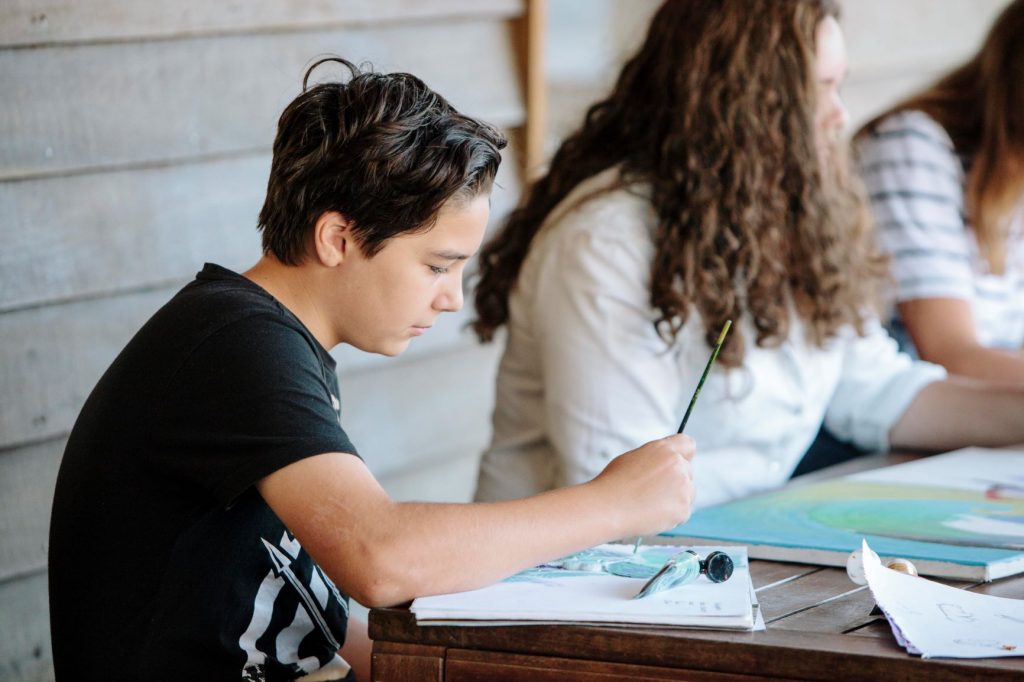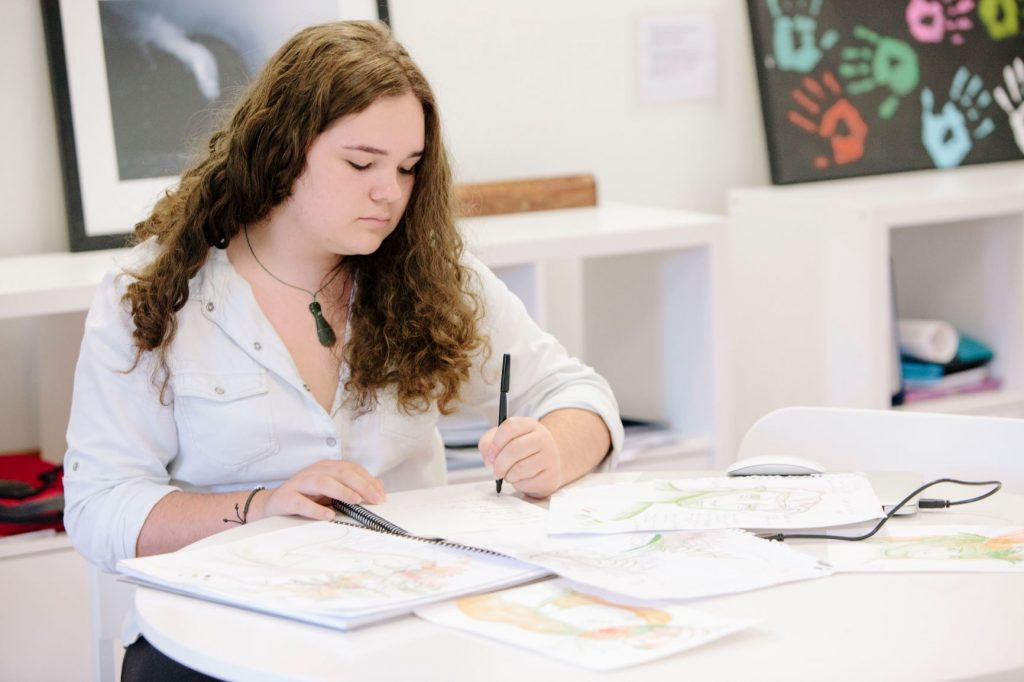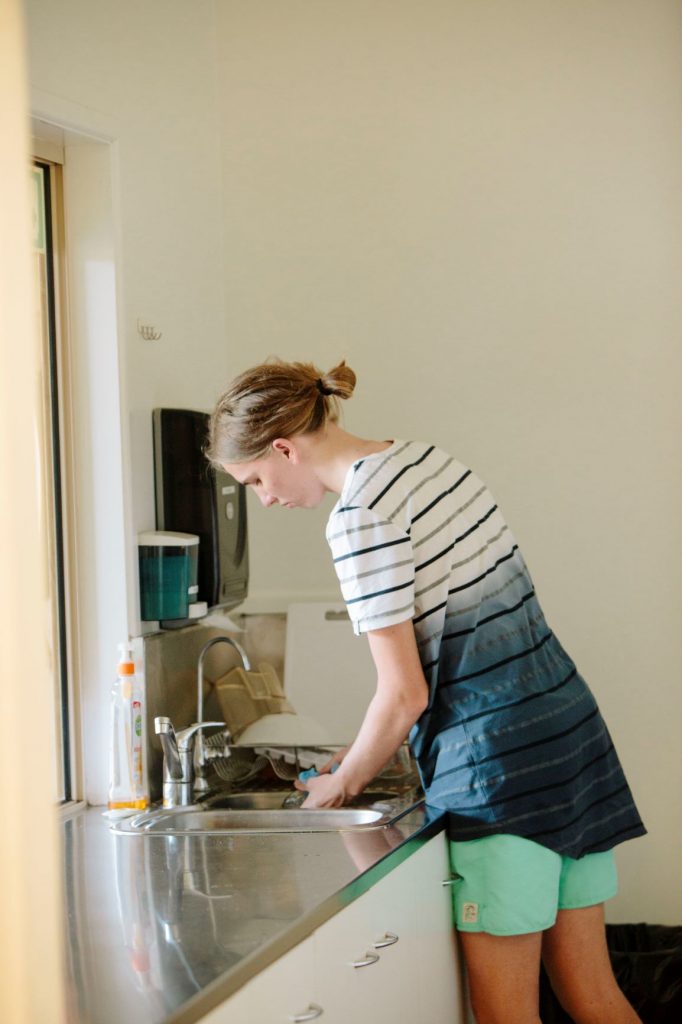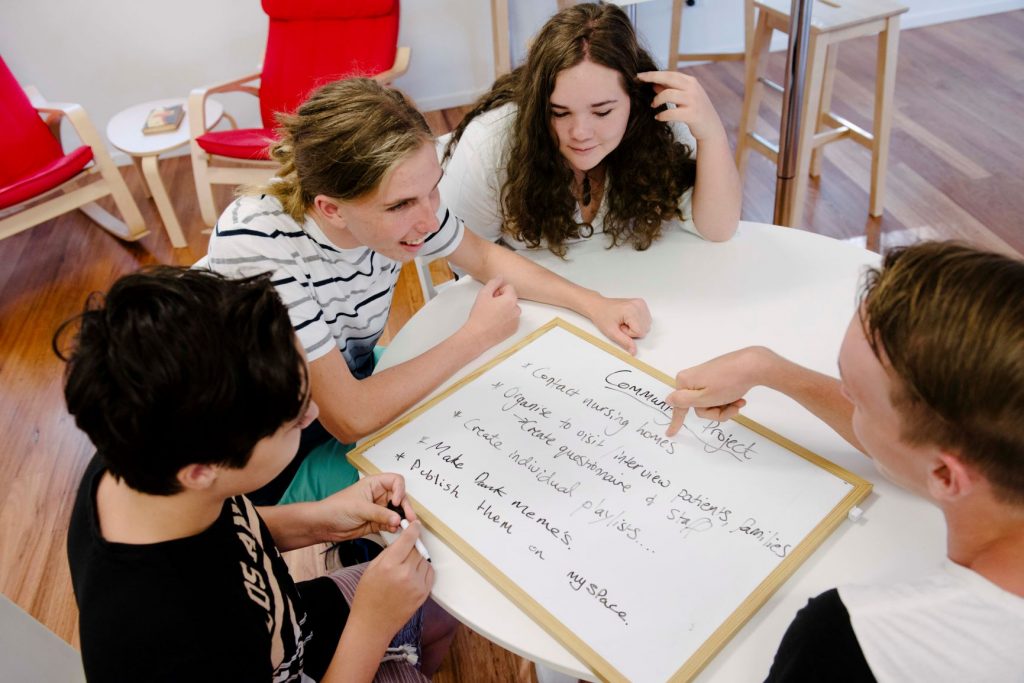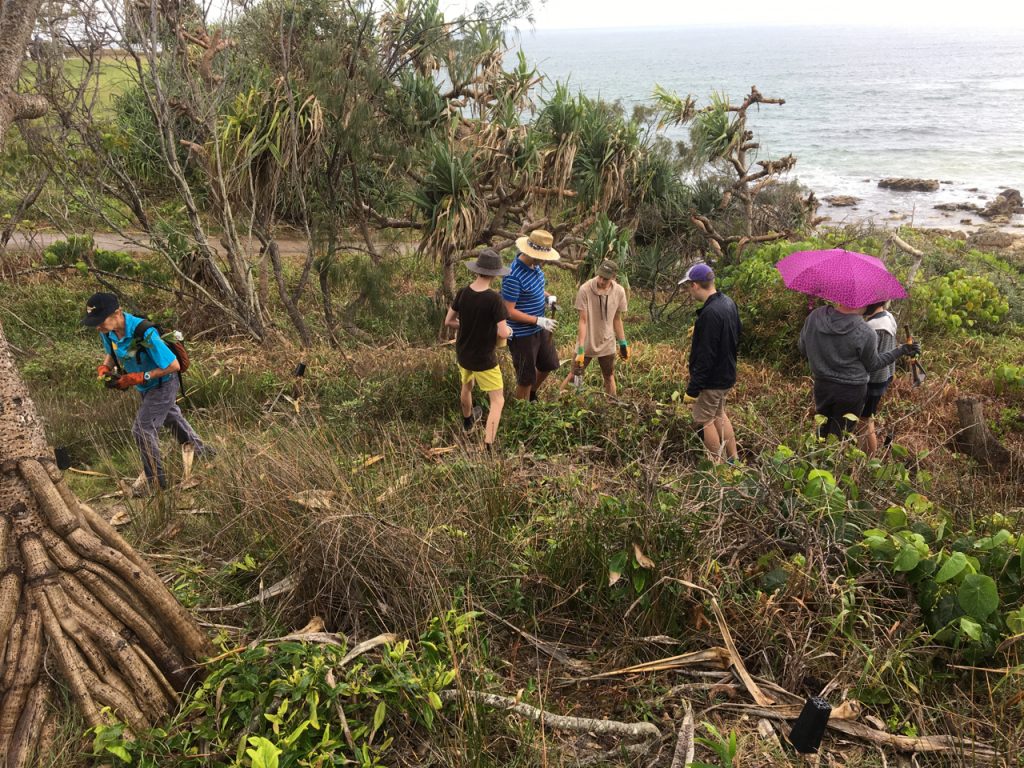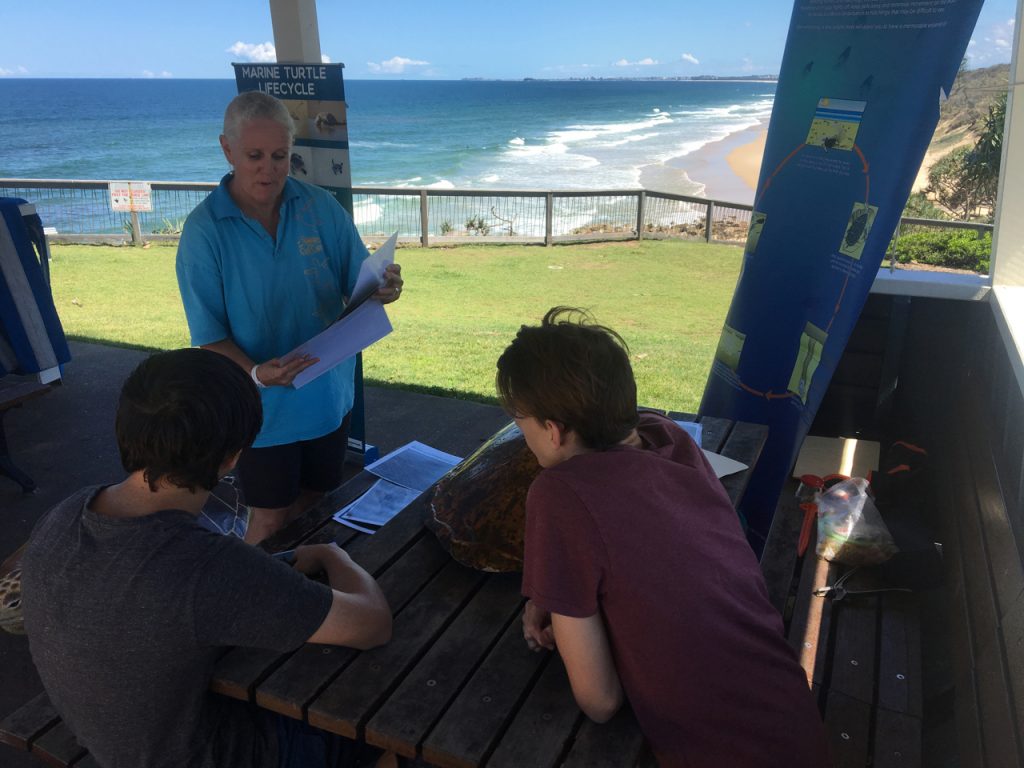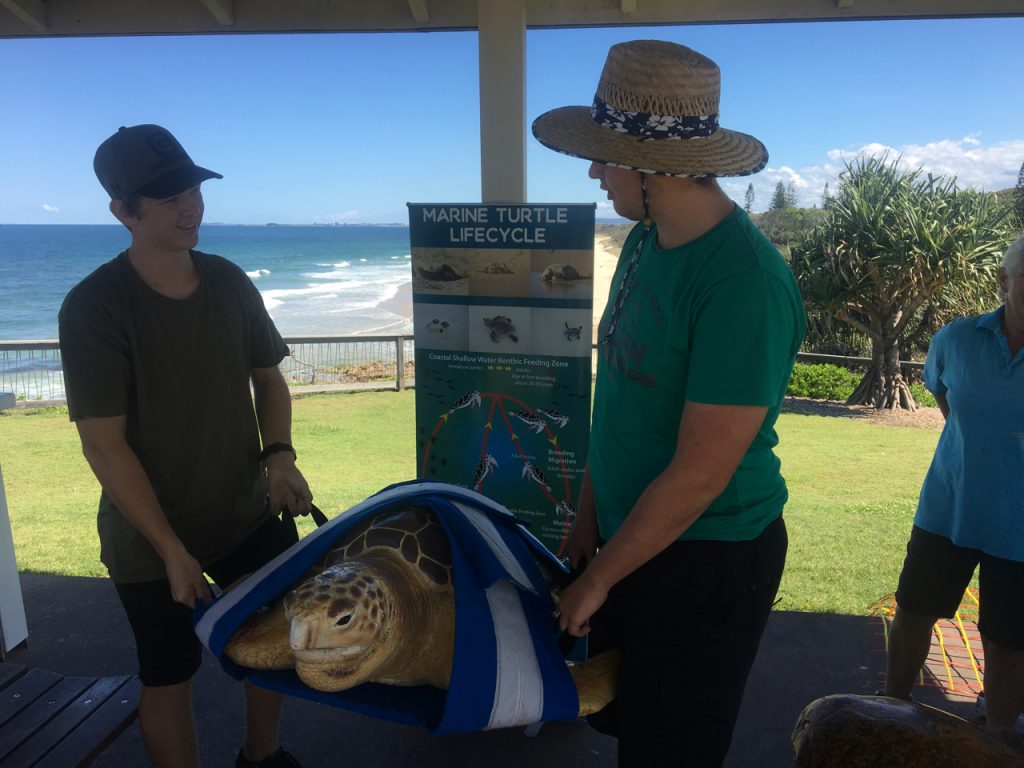The Future Pathways Senior Studies Program (Year 11 – Year 12) prepares the adolescent to transition into adult life by building pathways to employment or further education. Personalised learning programs are developed alongside the adolescent with a curriculum that has a global outlook and utilises experts from the field.
The environment for senior adolescents, as proposed by Maria Montessori, is one that will encourage and promote the adolescent’s development toward adulthood through meaningful work and real-life experiences.
There is a strong focus on leadership, in particular leading and mentoring younger peers at MIC, and on community contribution beyond MIC. Students gain experience in running a micro-economy and continue to learn skills in business ownership with an entrepreneurship focus. They can run a start-up or a Montessori+ program to earn an income through part-time employment.
Students experience creative expression through exhibitions and organising inter-school events. Many students also travel for national or international humanitarian or research experiences.
The Future Pathways Senior Studies Program aims to help young adults develop into individuals who:
- eagerly tackle academic and personal challenges
- are compassionate collaborators
- are mindful of ethics and morals in their decision making
- confidently work with specialists in the wider community and willingly engage in community service
- engage in thoughtful research and critical thinking to actively and creatively solve problems
- take action in their world for a more sustainable future and just society.
The Learning Environment
The campus environment incorporates naturally occurring remnant rainforest and native vegetation. This land laboratory becomes an integral part of student life and their studies.
Staff and students cultivate enduring positive partnerships with the broader community. Progressively, the adolescent comes to know of their vital role as an agent of positive change in the world.
This is what you could observe on a typical day in the Future Pathways Program:
When you walk into the Adolescent Community the first thing you notice is it looks and feels more like a creative workspace or university than a school.
A typical morning begins with a community meeting to plan the day. Advisory teachers check how students are going and everyone discusses current events in the news. Some students then break off into groups for specific academic classes such as English or Mathematics. Other students work independently – completing assessment tasks for university or TAFE courses.
One student may be adding images and words to a timeline of human conflict over the past century that stretches across the whole room. Another student could be editing a science film – an animation showing where the atomic elements used in mobile phones are sourced. Nearby a maths teacher and small group of students could be investigating how to apply their knowledge of trigonometry to the designs of their scale models of buildings. In the room next door teachers and students could be planning an upcoming community event, and on the verandah overlooking the bushland, students could be working independently, adding the finishing touches to a painting.
A question about platypuses could become a study of the monotreme’s natural environment and before long this could lead to an investigation of the creek that runs through our rainforest, involving students testing the water and looking for evidence of burrows.
Students then use the kitchen to make lunch for themselves or they work together to create a communal meal.
After lunch some students may leave campus to undertake Head Start program courses at university, others will attend TAFE or their traineeship, while others may assist a group of younger peers to undertake community service at a charity organisation in the community. Still others may be working on their business plan for a Montessori+ program they plan to offer to MIC students after school which they will run themselves as a small business to earn part-time income.
The last part of the day is spent looking after the environment; washing dishes, sweeping floors, watering plants and tidying in preparation for tomorrow’s classes. At MIC students are not only given clear pathways to university and future employment, they are given the practical skills they will need for their future independence.
